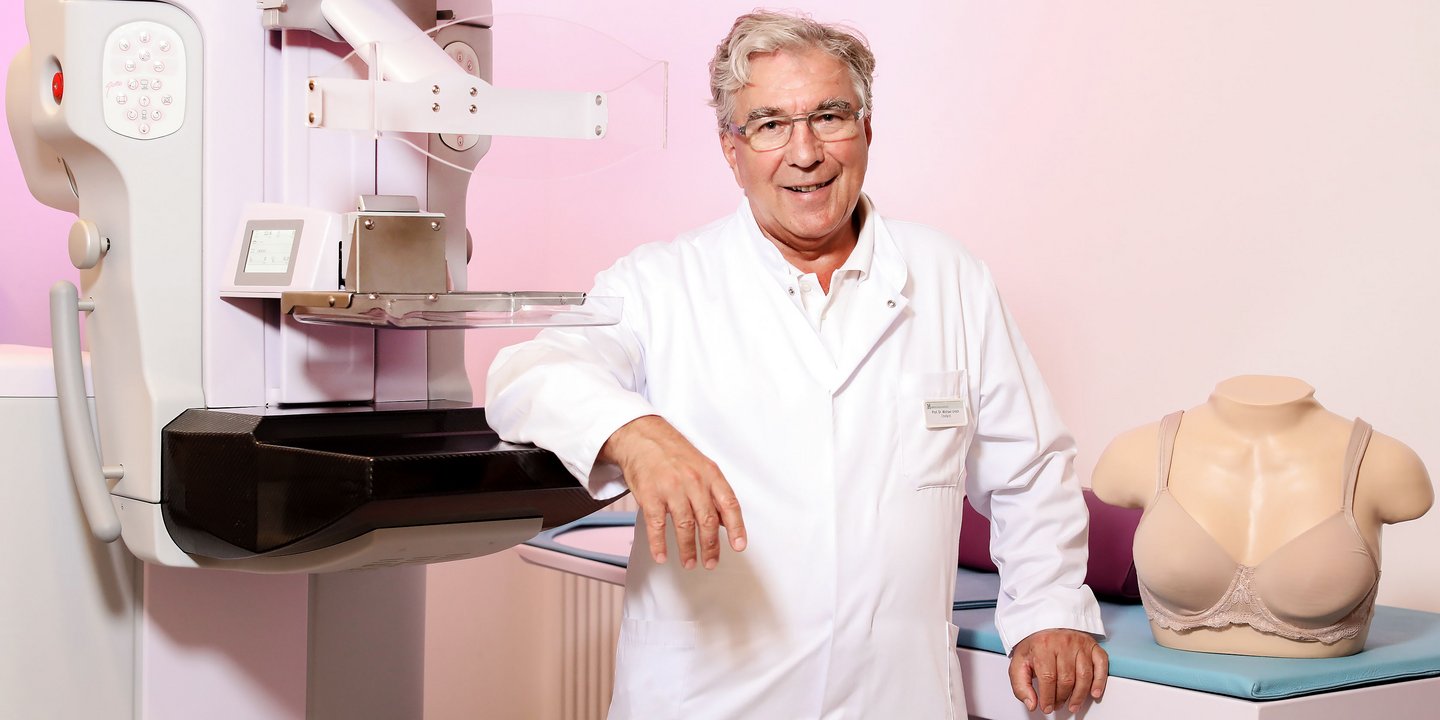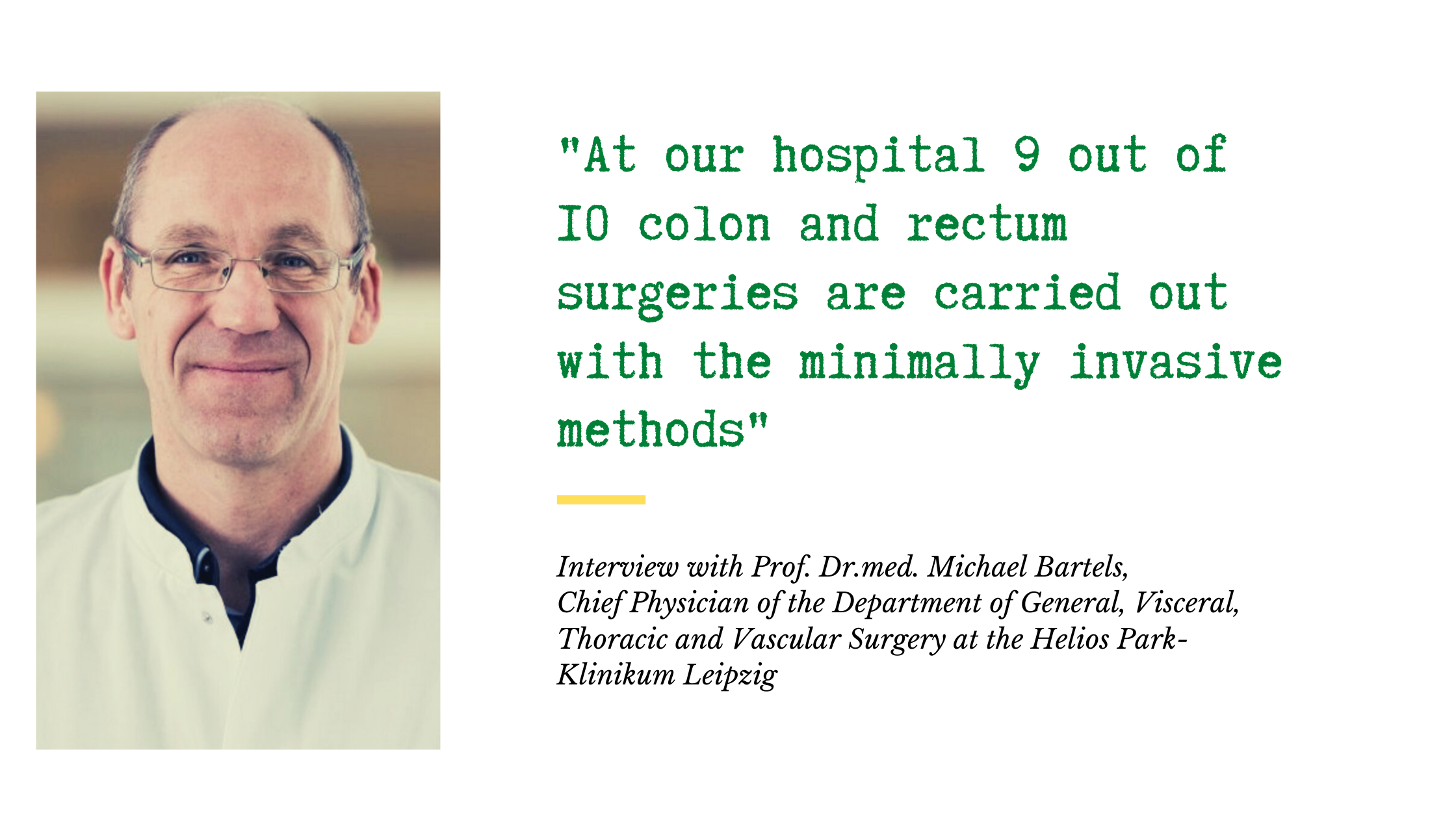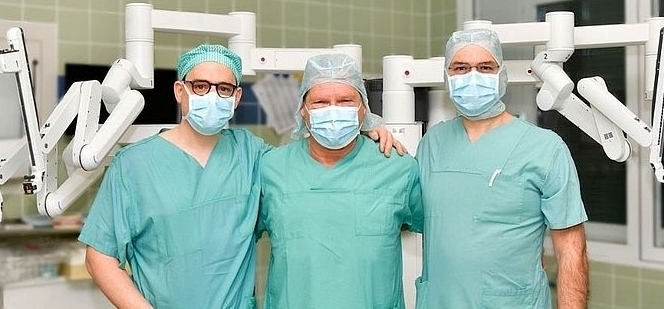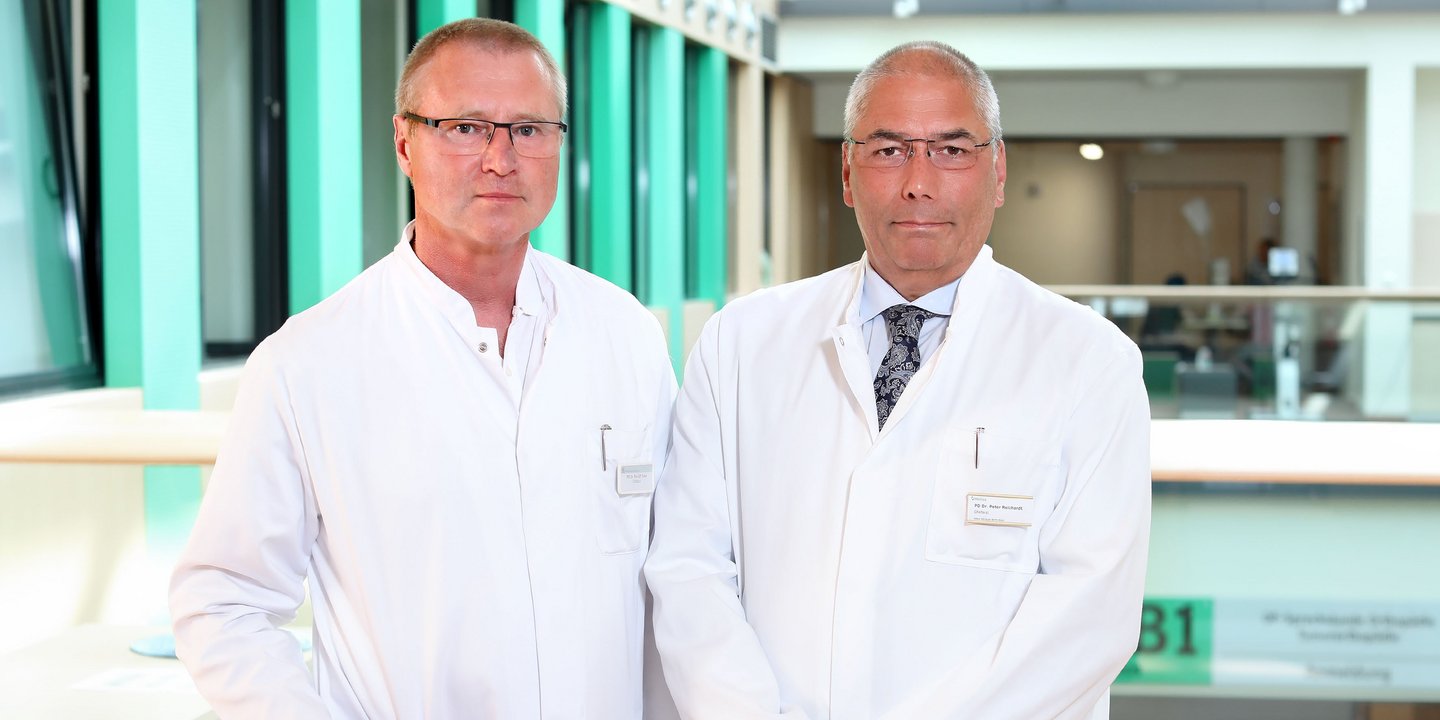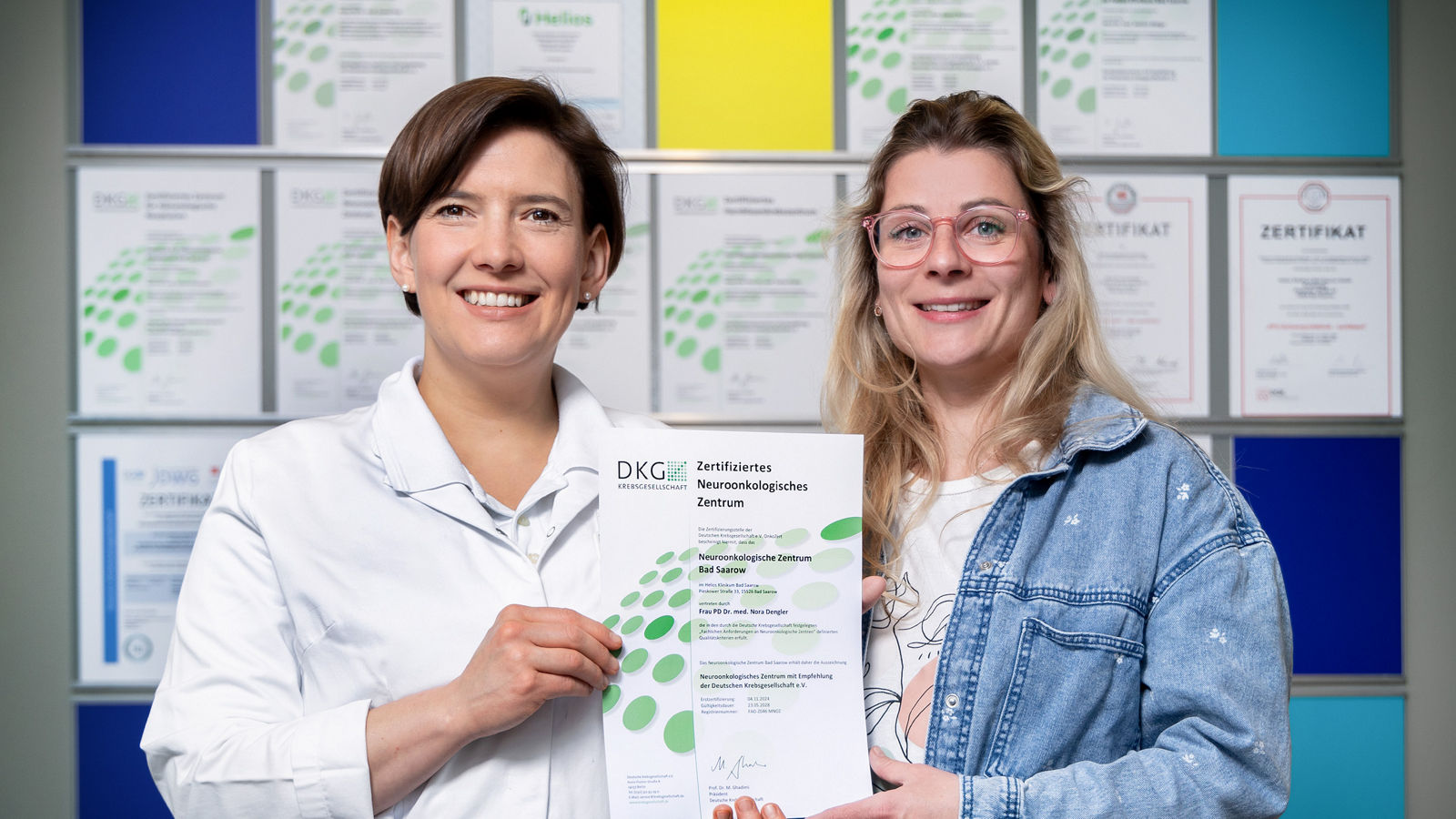
Colorectal cancer: Understanding and overcoming emotional stress
Colorectal cancer
According to the Robert Koch Institute data, approximately 31,300 men and 24,100 women will be diagnosed with colorectal cancer in 2020. It is elderly people are most often affected: the average age of a disease onset is 76 years for women and 72 years for men.
Given the medical advances, the mortality rate has been declining in recent decades. The 10-year survival rate for colorectal cancer patients is 56–60%. This means that in 10 years after diagnosing, 56–60 patients out of 100 patients who initially developed a disease remain alive.
How does cancer affect the mental health?
Many people with cancer develop an existential crisis. The everyday life they used to have up to that moment will change drastically. Most of the affected patients initially describe their condition as a state of shock, which includes despair, anger and protest (unwillingness to accept the reality). This is a starting point of the process that is defined in psychology as overcoming a disease. As cancer advances, a person becomes more aware of it and often accepts the disease.
Even if the first reaction is almost always shock, the diagnosis of "cancer and colorectal cancer" triggers mental strain in most people only for a short time, but this does not result in a long-term disturbance of internal balance,' emphasizes Dr. Ullrich during his conversation with us.
"The heightened requirements may arise at each stage of the disease to satisfy which the psycho-oncological support may be useful or even necessary."
– Dr. Gerald Ullrich, psycho-oncologist, the Oncology Center | Helios Hospital Schwerin
How do patients perceive the diagnosis of colorectal cancer?
'Colorectal cancer often deprives people of confidence. It is now important to have reliable information to navigate the everyday life being diagnosed with cancer,' says Dr. Gerald Ullrich.
After the initial shock, the information helps patients to understand that cancer can be cured if detected at an early stage. For example, a treating physician, family doctor can provide reliable information, or such information is given in oncology brochures and information websites.
What is really important to me?
'All of us have known since childhood that all people die sooner or later, but understanding what this really means is a completely different question, and therefore the diagnosis is a shock,' says the psycho-oncologist. The next thing is that many people begin to reflect upon the time left to them. 'Patients ask themselves a question what is really important to them now,' says the psycho-oncologist from Schwerin. Realization of the temporality of existence caused by disease may also become a source of strength and energy. Cancer patients can improve their quality of life by reflecting on themselves.
What is a new life?
The question of whether the intestine will function normally after its part affected by a malignant tumour is removed has a paramount importance to many patients. In some cases, it is necessary to temporarily form an artificial anus (Anus praeter). Once the stitched healthy sections of the intestine have healed, the natural path of the colon to the anus can be restored. The time required for 'switching' to an artificial anus is difficult for many patients, and at first some of them do not even realize that they will ever have an artificial anus, even though it is temporary.
If it is assumed that a permanent artificial anus will be formed, surgeons discuss this possibility with a patient at an early stage, so that not to bring false hopes and internally prepare a patient for painful changes. 'For many patients with colorectal cancer, a perspective of the permanent anus is a particularly serious aspect of a cancer diagnosis, which is already bad,' says Dr. Ullrich. 'Men usually take it worse than women, and young people, even worse.' This is not surprising, especially if to speak about the patients with colorectal cancer who are relatively 'young' (under 45 years of age), since the appearance and the effect of physical damages on sexuality are very important.
As it was mentioned above, many colorectal cancer patients feel low due to the need of having an artificial anus, especially at the very beginning. This is because the topic of bowel and bladder functions, especially defecation, is often a taboo and disgusting. 'The idea that they will have to lead a permanent life with this "replaced body part" is obviously difficult for many patients,' says Dr. Gerald Ullrich.
The rehabilitation that follows treatment is usually a necessary basis for gradual overcoming of this seemingly insurmountable obstacle: with the goal of accepting it someday (which usually happens soon).
What helps to cope with the disease?
Cancer makes patients be exposed to many 'sources of stress', some of which they feel hard to control. For example, stress arises from the loss of personal safety and confidence that they will have a long life. In addition, the treatment-associated stress surely plays an important role. However, the stress is also a result of many small and significant problems arising in the personal, social and professional environment in connection with cancer.
'The methods that create a positive counterbalance help patients to manage the stress caused by a disease,' says Dr. Ullrich.
These methods include:
- Physical activity and sports;
- Closer attention to positive events and experiences in daily life;
- Mastering relaxation techniques such as Jacobson's muscle relaxation technique, autogenic training, yoga, tai chi;
- Increased vigilance to avoid stress.
'Despite everything, patients should keep "error-tolerance" and do not expect things to always the way they want. It is easier to say than do, but this is important to overcome the disease,' affirms the psycho-oncologist.
Talking to children about colorectal cancer and its consequences
If one of the grandparents or even one of the parents is diagnosed with colorectal cancer, the children will also feel the changes. It is important to think carefully how to introduce reality to a child.
'It is usually impossible to keep children safe from cancer without talking about it. Worried faces or tearful eyes are a signal to a child that something is wrong, and this triggers anxiety and fear,' says Dr. Gerald Ullrich. In the worst case, a child is unable to share his fears and concerns with parents because he does not find support.
If there are doubts, it is recommended that parents seek advice and support primarily from a paediatrician or a psychologist, sometimes a single consultation is enough (see also Information Sources below).
'Each family has its own method of coping with a crisis, so it takes a while before parents figure out the best way to their child if such a diagnosis is established,' says Dr. Ullrich.
"It is usually impossible to keep children safe from cancer without talking about it. Worried faces or tearful eyes are a signal to a child that something is wrong, and this triggers anxiety and fear."
– Dr. Gerald Ullrich, psycho-oncologist, the Oncology Center | Helios Hospital Schwerin
Who can the patients turn to?
Personal talks to experts:
- Psycho-oncologists in a hospital or rehabilitation clinic;
- Private psychotherapists;
- Oncology consultation centres, or consultation centres for solving real-life situations.
Sharing information with other patients:
- in a rehabilitation clinic;
- in self-support groups;
- on online forums.
Read more:
Do you need more information about Helios Hospitals or want to schedule your treatment?



